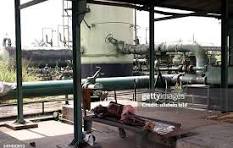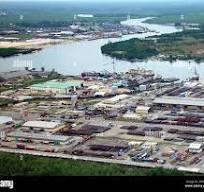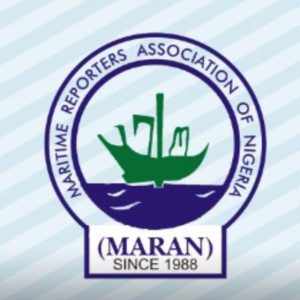By Enyeribe Anyanwu
Journalists covering the nation’s maritime sector have expressed strong concern over the deteriorating environmental and health conditions of industrial areas of Apapa and Tin Can Island ports.
The journalists, under the aegis of Maritime Reporters Association of Nigeria (MARAN), said the environmental condition of the ports environment is becoming “increasingly hazardous”, particularly in the vicinities around Flour Mills Nigeria Plc, the Dangote Group, Olem Agric, BUA Foods, and Honeywell Flour Mills.
A statement issued in Lagos by the association’s President, Mr. Godfrey Bivbere, raised alarm over the presence of airborne particles suspected to be linked to flour and other industrial processing activities. This, he noted, appear to be affecting port users, workers, journalists, and security personnel operating in the area.
According to MARAN, people who frequent those areas now report symptoms such as eye irritation, coughing, and respiratory discomfort. The association emphasized the need for urgent intervention by relevant regulatory bodies to assess the situation and ensure compliance with environmental safety standards.
“The Apapa and Tin-can port corridors are a vital national asset and must be maintained to the highest environmental and health standards. We are observing a significant presence of airborne dust, which raises concerns about long-term health implications and infrastructure degradation,” the statement said.
The association called on the Federal Ministry of Environment and the Lagos State Environmental Protection Agency (LASEPA) to conduct an air quality assessment in the areas and compare findings with World Health Organization (WHO) guidelines. It also recommended the deployment of mobile medical clinics to support workers who may be experiencing health issues related to prolonged exposure.
The group also urged companies operating in the port environment to review their environmental management practices, and align with international best practices, including the use of enclosed silos and dust extraction systems. It stated that these recommendations are based on global standards for industrial hygiene and are intended to promote a safer, more sustainable working environment.
The maritime reporters also expressed concern over the impact of dust accumulation on recently rehabilitated roads, warning that continued exposure could accelerate infrastructure deterioration and undermine public investment.
The association reaffirmed its commitment to constructive engagement and public advocacy, stressing that it will continue to monitor developments and collaborate with stakeholders to ensure that the Apapa and Tin Can ports corridors remain safe, efficient, and compliant with global best environmental practices.
Photo Credit: Getty Images





More Stories
Drugs that increase cancer risk
Waning virus protection
The cancer killing drug that may replace chemotherapy